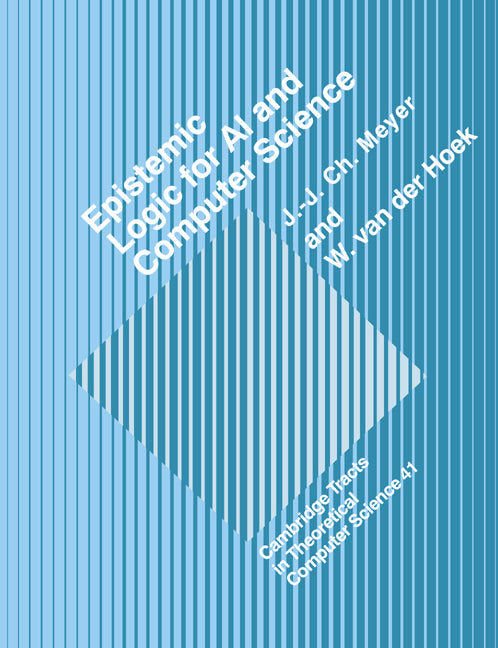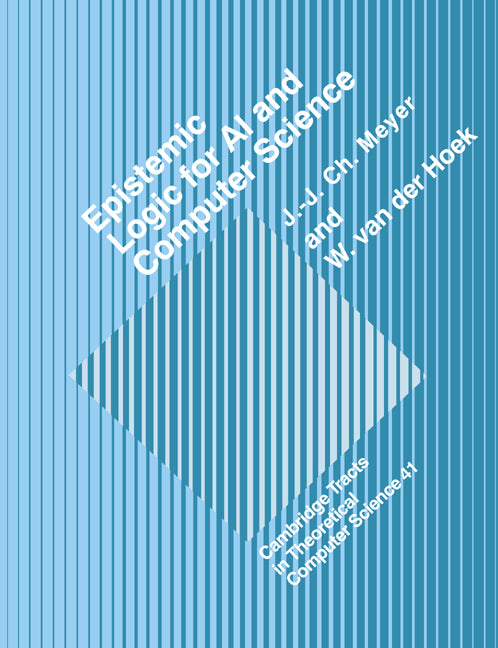Freshly Printed - allow 8 days lead
Couldn't load pickup availability
Epistemic Logic for AI and Computer Science
A broad introduction to the subject; many exercises with full solutions are provided.
J.-J. Ch. Meyer (Author), W. van der Hoek (Author)
9780521602808, Cambridge University Press
Paperback, published 25 March 2004
372 pages, 140 exercises
24.5 x 18.9 x 2.2 cm, 0.66 kg
' … a very detailed coverage … that is well written, well reasoned, and a useful reference to have on the shelf.' R. J. Bradford, Axis
Epistemic logic has grown from its philosophical beginnings to find diverse applications in computer science as a means of reasoning about the knowledge and belief of agents. This book, based on courses taught at universities and summer schools, provides a broad introduction to the subject; many exercises are included together with their solutions. The authors begin by presenting the necessary apparatus from mathematics and logic, including Kripke semantics and the well-known modal logics K, T, S4 and S5. Then they turn to applications in the contexts of distributed systems and artificial intelligence: topics that are addressed include the notions of common knowledge, distributed knowledge, explicit and implicit belief, the interplays between knowledge and time, and knowledge and action, as well as a graded (or numerical) variant of the epistemic operators. The problem of logical omniscience is also discussed extensively. Halpern and Moses' theory of honest formulae is covered, and a digression is made into the realm of non-monotonic reasoning and preferential entailment. Moore's autoepistemic logic is discussed, together with Levesque's related logic of 'all I know'. Furthermore, it is shown how one can base default and counterfactual reasoning on epistemic logic.
Preface
1. Introduction
2. Basics: the modal approach to knowledge
3. Various notions of knowledge and belief
4. Knowledge and ignorance
5. Default reasoning by epistemic logic
References
Appendices
Answers to exercises
Index.
Subject Areas: Artificial intelligence [UYQ], Mathematical theory of computation [UYA], Mathematical logic [PBCD]


